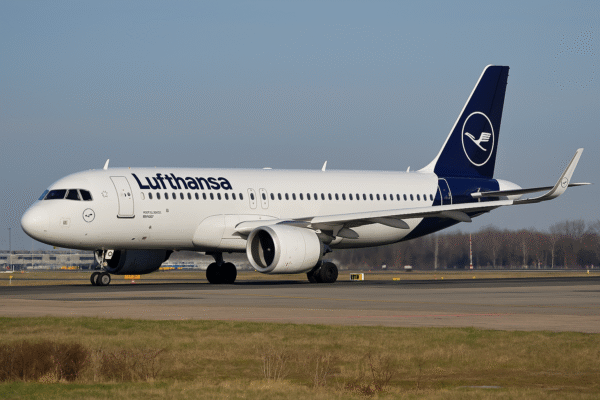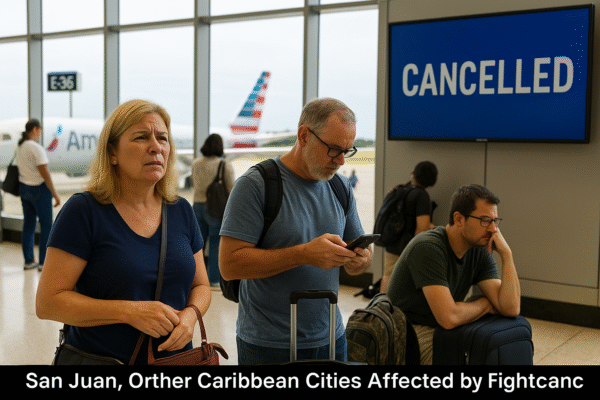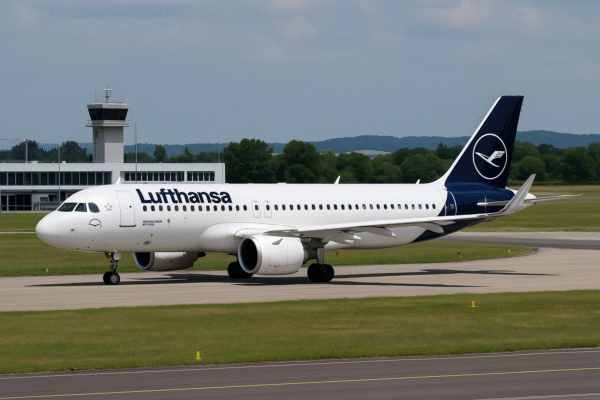Lufthansa, one of Europe’s largest and most influential airlines, has issued a stark warning about the future of its domestic and regional operations in Germany. The airline announced that escalating aviation taxes, soaring fuel prices, and a steep rise in operational expenses are forcing it to reconsider the viability of many routes from smaller German airports.
Chief Executive Officer Jens Ritter emphasized that the German government’s 2026 budget draft does little to address the financial strain on the aviation sector. With no relief on the horizon, Lufthansa is weighing significant adjustments to its network. If these challenges persist, regional airports across the country may soon lose their crucial flight connections.
The Aviation Tax Burden
A central issue lies in Germany’s recently increased aviation tax rates. Effective from 2024, taxes on tickets rose sharply:
- Short-haul flights: from €12.48 to €15.53
- Medium-haul flights: from €31.61 to €39.34
- Long-haul flights: from €56.91 to €70.83
These hikes have made ticket prices more expensive for passengers and squeezed airlines’ profit margins. Ritter pointed out that while other European nations maintain lower aviation taxes, Germany’s carriers are forced into a competitive disadvantage. For Lufthansa, this means regional connections that were once marginally profitable are now teetering on the edge of unsustainability.
Airports and Regions Most at Risk
Smaller German airports are the most vulnerable. Cities such as Bremen, Dresden, Cologne, Leipzig, Münster, Nuremberg, and Stuttgart are all facing the possibility of reduced flight schedules.
For local communities, the potential withdrawal of Lufthansa flights would be more than just an inconvenience. These routes provide critical links for both leisure and business travel. For regional economies that depend on tourism, direct connectivity is often the difference between attracting international visitors or being bypassed in favor of larger hubs like Frankfurt and Munich.
Travelers may soon face longer journeys and higher costs, as they will need to travel to major international airports before continuing on to their final destinations. This change could make smaller German cities less appealing to international tourists, dampening hotel stays, restaurant visits, and cultural tourism.
Government Promises vs. Reality
The strain between Lufthansa and the German government highlights a broader debate about how aviation should be supported. During coalition negotiations, commitments were made to ease the tax burden on airlines and reconsider increases to air traffic taxes. However, these promises have not materialized in the federal budget draft for 2026.
The lack of government action leaves airlines like Lufthansa in a difficult position. While they strive to maintain strong domestic and regional networks, the rising tax environment creates conditions where many routes are no longer sustainable. Ritter has made clear that without policy changes, Lufthansa will have no choice but to prioritize profitable international markets over regional connectivity.
Tourism Industry Concerns
Germany’s tourism sector could feel the most immediate impact. Accessibility is one of the strongest drivers of tourism growth, and reduced flights mean fewer options for international travelers.
Cities such as Dresden, known for its baroque architecture and cultural festivals, or Nuremberg, famous for its historic old town and Christmas markets, could see fewer foreign visitors if direct air links are reduced. The knock-on effects could be significant: fewer tourists mean decreased demand for hotels, guided tours, restaurants, and attractions that rely heavily on steady visitor flows.
Tour operators and local tourism boards have expressed concerns that reduced connectivity will also affect domestic travel. Germans who previously enjoyed convenient weekend trips or business travel from regional airports may now face longer commutes and higher travel costs.
Lufthansa’s Strategic Shift
Behind the scenes, Lufthansa is already considering a reorientation of its network strategy. The airline is likely to redeploy capacity from unprofitable regional routes toward international long-haul destinations that generate higher returns.
This approach reflects broader trends in global aviation. Airlines increasingly focus on consolidating traffic through major hubs, leaving smaller airports dependent on budget carriers or limited services. For Germany, this shift could mean more concentration of flights in Frankfurt, Munich, and Düsseldorf, while regional hubs are gradually marginalized.
Wider Economic Implications
The consequences of these potential cuts extend beyond tourism. Businesses in smaller German cities depend on air connectivity for international trade, meetings, and conferences. Reduced flight options could make regional cities less attractive for investment, ultimately affecting local economies and job markets.
Additionally, Germany’s role as a leading European destination could be challenged. Neighboring countries with more competitive aviation tax structures may attract tourists and business travelers who would otherwise have chosen Germany.
The Road Ahead
As negotiations between Lufthansa and the government continue, the fate of regional air connectivity remains uncertain. The airline insists that it wants to maintain its strong domestic presence, but without government support or cost reductions, financial realities will dictate future decisions.
For now, travelers and tourism stakeholders must prepare for possible changes in Lufthansa’s operations. Should route reductions go ahead, Germany’s tourism map could shift, with some regions facing a downturn in visitor numbers and reduced accessibility.
Conclusion
Lufthansa’s warning is not just an airline business decision—it is a tourism and economic issue with far-reaching consequences. The loss of regional flights could reshape Germany’s travel landscape, affect millions of passengers, and impact local economies dependent on international and domestic visitors.
Unless meaningful tax reforms or government relief measures are introduced, the airline’s strategy will inevitably favor profitable long-haul and international destinations, leaving regional airports—and the communities that rely on them—at risk of being left behind.
For more travel news like this, keep reading Global Travel Wire


















